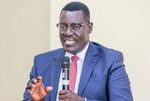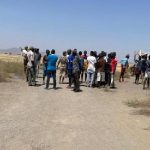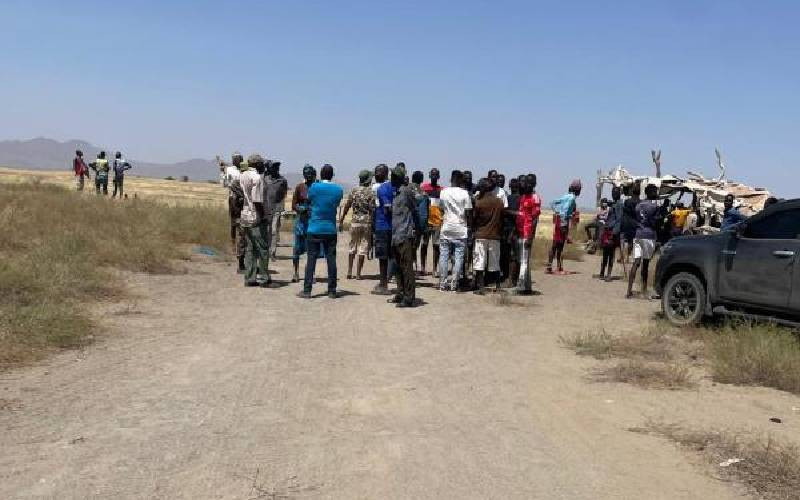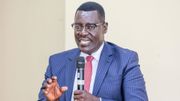Kenya Security personnel pitch camp in Todonyang border point to recover missing bodies.Atleast 20 fishermen were killed by suspected Dassanech Ethiopian Militia. [Courtesy]
Survivors of the Turkana massacre yesterday described their harrowing experience at the hands of the bloodthirsty Ethiopian militia that killed at least 20 people in Todonyang.
The scale of the Saturday lunchtime carnage has left the community reeling. Grief-stricken families continue to search for missing loved ones, with bodies still unaccounted for.
Kenya’s security agencies are yet to give a coherent explanation of how the militia from a neighbouring country crossed into Kenya to kill and maim on such a huge scale.
Questions over the laxity or incompetence of Kenya’s intelligence emerged yesterday after survivors said that tensions between Kenya’s Turkana and Ethiopia’s Dassanach started to build up earlier over fishing disputes.
The violence erupted following a fishing dispute between the Turkana and Dassanach communities that led to the killing of three Dassanach fishermen.
In retaliation, the Dassanach militia regrouped and surrounded the villages of Lotiira and Lopeimukat, launching a coordinated attack.
“People were running everywhere. Some jumped into the lake, thinking they would be safe, but many never resurfaced,” said James Ekitela, a fisherman who lost his cousin.
Memories Emoria and Peter Eregae, who lived through the nightmare, now recount their harrowing escape.
For Emoria, survival came by sheer luck and the kindness of one man. He said he was with others in Natira village when the trouble started.
“We were just relaxing when a Dassanech man suddenly came running with shocking news—three of their people had been killed. In minutes, the entire mood in the village changed. We were surrounded, pushed together, and beaten. The anger in their eyes told us we were not going to survive,” he recalled.
But just as their fate seemed sealed, an elderly Dassanech man, identified as Lokoumoit, stepped in.
“He told them, ‘Even if our people were killed, it was not here. You cannot harm innocent people.’ He argued with them until they finally backed off. Then he took us into his house and locked us inside,” Emoria said.
As they hid, the attackers turned their focus elsewhere.
Stay informed. Subscribe to our newsletter
“They rushed to the lake, took a boat, and found Turkana fishermen. Without warning, they opened fire, killing many. Some tried to escape by jumping into the lake, but most never resurfaced. Then they moved to Lopeimukat village and continued the killings,” he narrated.
Later, Lokoumoit returned and guided Emoria and more than 20 other Turkana men to safety near the Kenya police post.
“If not for him, we would have all died. It was a miracle,” he said.
Eregae, who was among the fishermen at the lake, said he had just finished setting his fishing nets when he heard the first gunshot.
“At first, we thought it was just a normal gunshot from a hunter, but then we saw a boat approaching fast. Before we could react, bullets started flying in every direction. There was no time to think. Everyone ran,” he said.
Eregae tried to escape but was caught in the chaos.
“People were jumping into the lake, but the gunmen kept shooting. They weren’t just killing—they wanted to wipe us out. I dived into the water and swam under the surface as long as I could. I only came up for air when I was far enough,” he recalled.
By the time the shooting stopped, the lake was littered with bodies. He said he lost two friends and a relative.
“I lost friends. I lost my family. We were just fishermen trying to earn a living, but we were hunted like animals,” he said, his voice filled with grief.
Eregae managed to make it back to shore and hid until he was rescued hours later. Now, like many other survivors, he remains in hiding, afraid that the attackers will return.
“We don’t feel safe. We don’t know when they will strike again. We need security before more lives are lost,” he pleaded.
As the bodies continue to be recovered from the lake, the wails of grieving families fill the air. The survivors of Todonyang carry deep scars—both physical and emotional—of a massacre that has left their community shattered. Their only hope now is for justice and security before another tragedy unfolds.
Interior CS Kipchumba Murkomen, who visited the area yesterday, said the exact number of casualties remains uncertain.
The government yet again failed to disclose the exact numbers of the fishermen shot dead by the militia but admits some fishermen were missing.
Yesterday the Ethiopian administration in a closed-door meeting chaired by the two interstate organs from Kenya and Ethiopia in Todonyang admitted that their people committed atrocities against Kenyan fishermen.
The Ethiopian administration vowed to work with Kenyan security to find the missing persons.
“Even the locals are not sure about the figures. It is estimated that around 20 people may have been killed, but verification is ongoing,” he stated.
Murkomen announced that the government would engage Ethiopian authorities to address cross-border security concerns. He said they are discussing the establishment of a structured border post to improve coordination between the two countries and prevent such incidents in the future.
He further directed the regional commissioner to form a security team, including the Turkana County Commissioner, to work with Ethiopian officials in locating missing persons.
“I have ordered a joint security effort to account for those who are unaccounted for. The team will collaborate with authorities across the border to bring closure to affected families,” he added.
The attack has left the community in mourning, with families still searching for missing loved ones.
Turkana North MP Ekuom Nabuin said there is a need for lasting security solutions, adding that this was not the first time such an attack was happening.
Despite the increased security presence, fear remains high among residents, many of whom have fled to nearby villages.
“We are not safe. We need assurance that this will not happen again,” said James Ekitela, a local elder.
The massacre, one of the deadliest in recent years, has left families shattered, with bodies still missing in the depths of Lake Turkana.
The massacre has reignited long-standing tensions between the Turkana and Dassanach communities, who share access to Lake Turkana but have often clashed over fishing rights and grazing land.
In 2011, a similar attack in Todonyang claimed 43 lives, yet years later, the killings persisted.









